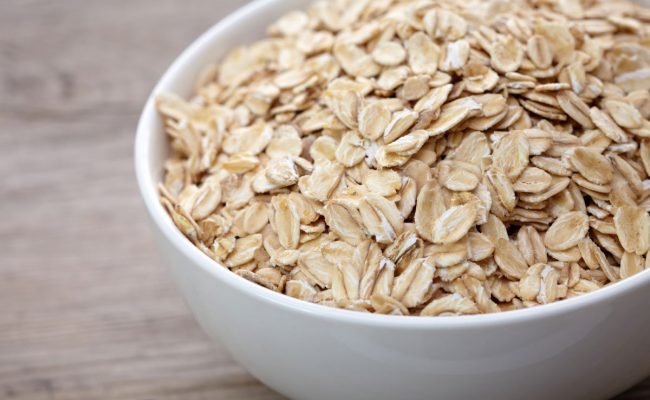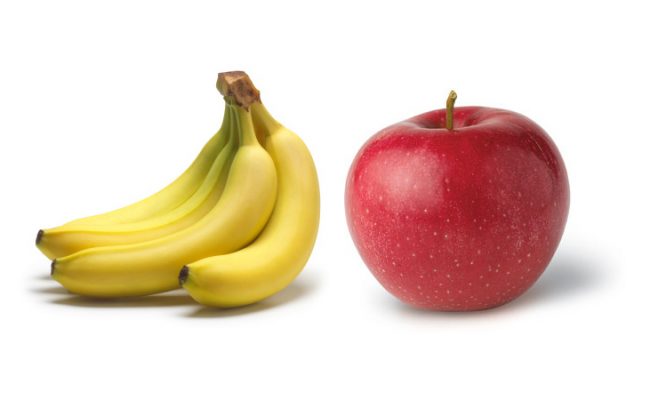
Carrots are one of the most widely consumed vegetables falling second in consumption only to potatoes. Carrots are usually thought of as orange, sweet and crunchy, but carrots can also vary in flavor profile and be purple, white or yellow.
One of the claims to fame for carrots is promoting eye health. A compound in carrots called carotenoids provides a dietary source of antioxidants that can protect eyes and other body cells from damage caused by carcinogens.
In fact, a diet high in carotenoid rich fruits and vegetables is associated with a lowered risk of cancer.
Besides being high in beta carotene (a form of vitamin A), carrots also provide fiber, potassium, B vitamins, vitamin C and small amounts of iron and magnesium.
A diet high in a variety of fruit and vegetable intake is recommended for overall health and lowering chronic disease risk.
Adding carrots to your diet is recommended, but make sure to get a variety of vegetables for optimal health benefits.
The only concern with eating too many carrots for healthy people is your skin may turn a slightly orange tint. However, this is not considered harmful for health.
See Also: Benefits of Carrot Juice
Carrots and cancer risk
Studies have shown a diet high in carotenoids from fruits and vegetables is associated with a lowered risk for lung and stomach cancers (1).
Current recommendations suggest getting the carotenoids from food sources over supplements.
A 2013 study (2) in male smokers daily alpha tocopherol (vitamin E) supplement did lower prostate cancer risk, but beta carotene supplement was associated with an increased risk for lung cancer and overall mortality.
A 2014 study (3) looked at circulating blood levels of vitamin E and beta carotene in cancer survivors.
Researchers found higher beta carotene and vitamin E levels were associated with improved cancer survival.
Researchers concluded from this study that higher intake of these nutrients from food before a cancer diagnosis may help contribute to cancer survival.
Of course eating a high intake of carrots can’t guarantee you won’t get cancer.
There are many factors that go into cancer risk, and diet is only one way to influence risk. Most studies and health organizations recommend eating a high intake of carotenoid rich fruits and vegetables (like carrots) to help lower risk for certain cancers.
However, taking a carotenoid supplement may not offer the same benefit as getting these nutrients through the diet.
Carrots and eye health
A cup of chopped carrots provides over 400% DV vitamin A. This vitamin A is from beta carotene, the plant version of vitamin A.
Vitamin A is needed for immune health, vision and to make new cells. Vitamin A’s role in vision is very important; not getting enough vitamin A from dietary sources can actually lead to blindness.
Vitamin A helps form a part of the eye called rhodopsin. Rhodopsin is needed for absorbing light to help us see in the dark.
A vitamin A deficiency can lead to night blindness which could lead to outright blindness.
Vitamin A deficiency is rare in first world countries, but some parts of the world still struggle with vitamin A deficiency.
Since carrots are so high in vitamin A, carrots can sometimes get promoted as being able to help people see better.
However, eating more carrots can’t fix vision problems or help you not need to wear glasses.
Getting enough beta carotene, lutein and zeaxanthin which are two other antioxidants from food, could help lower risk for age related macular degeneration (4).
Eating more carrots can help avoid vitamin A deficiency night blindness and age related macular degeneration, but it can’t help your vision improve.
Are carrots high in sugar?
Sometimes people avoid carrots because they have heard they can be high in sugar.
It’s true carrots tend to be a starchier vegetable like corn or potatoes. They also have a relatively high glycemic index number.
The glycemic index is a way to measure the effect a food will have on blood sugar after eating it.
Does this mean you should avoid carrots because they are high in sugar? Absolutely not.
The glycemic index is a tool to measure an effect on blood sugar but sometimes it can be misleading.
Yes carrots have a high glycemic index, but the glycemic LOAD for carrots is much lower. The glycemic load takes into account the serving size of a food.
Endocrinologist and medical director Dr. Nadeau in a New York Times article (5) suggests it would take eating 6-7 servings of carrots to get a similar impact on blood sugar from a ¼ cup of sugar.
Eating 1-2 servings of carrots at a time is much more reasonable amount of food and will probably be part of a meal with other foods.
This can also lower the raise of blood sugar after a meal.
Besides the carbohydrate content, carrots could impact blood glucose regulation another way.
The phytochemicals from carrots could also play a beneficial role with blood sugar regulation.
If you are on medication for insulin or blood sugar issues, make sure you consult your healthcare team before increasing your intake of carrots.
Adding carrots to a carbohydrate controlled diet may be cause for shifting your food intake and/or medication amounts for blood glucose control.
Conclusion: real benefits from carrots
For optimal health benefits, carrots should be eaten with a variety of other fruits and vegetables in a balanced diet.
Some studies suggest eating a diet high in carotenoids from fruits and vegetables could lower risk for certain cancers.
Carrots are a concentrated source of carotenoids and can help protect cells from damage caused by carcinogens.
Carrots are very high in beta carotene which is a precursor to vitamin A. Vitamin A is needed for eye health, immune function and making new cells in the body.
While eating more carrots may not improve vision to 20/20, it can help protect eye cells from damage over time that could lead to macular degeneration.











